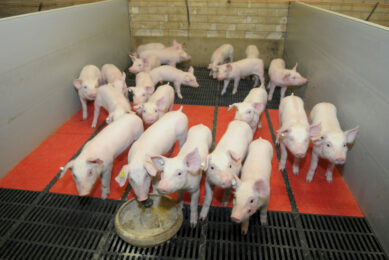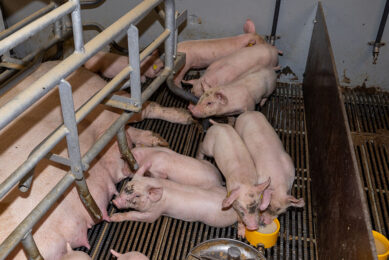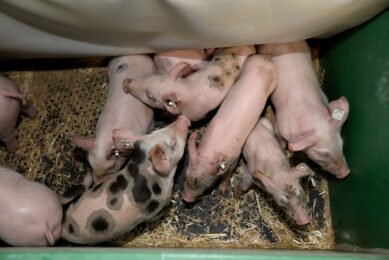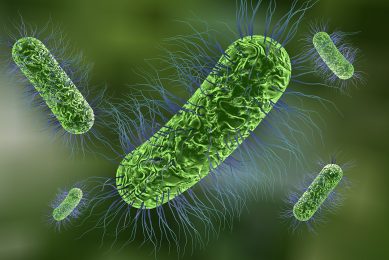Saccharicterpenin reduces post-weaning diarrhoea
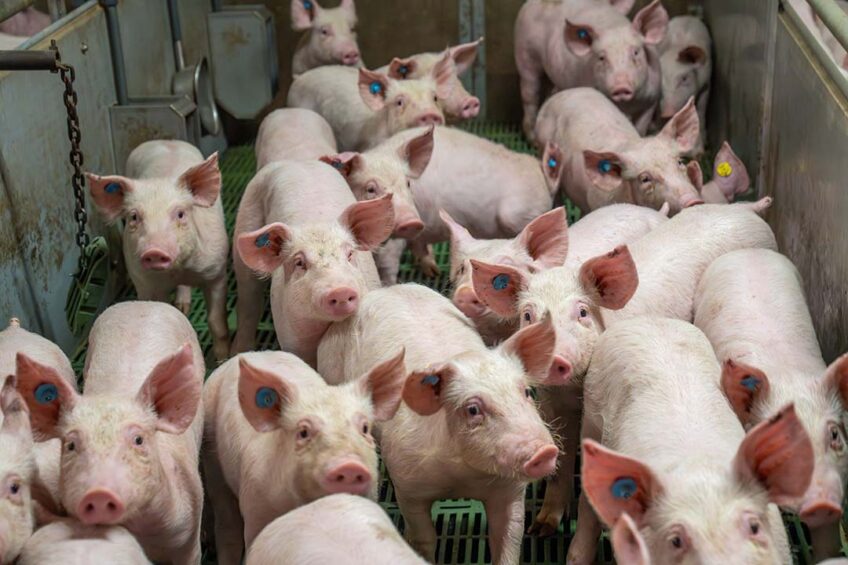
Dietary supplementation with saccharicterpenin decreases post-weaning diarrhoea. That was the outcome of recent Chinese research to find new ways of overcoming post-weaning diarrhoea.
A research article, published in the Journal of Livestock Science earlier in 2023, concluded that supplementation with saccharicterpenin decreases diarrhoea incidence through decreasing the digesta pH values, increasing digestive enzyme activities, maintaining the balance of microflora, promoting the development of gut morphology and regulating gut barrier-related genes in piglets.
Background of the study
Saccharicterpenin, an extract from camellia seed cake, comprises of saponins, polysaccharides, and organic acids with improving effects on growth performance, gut barrier functions, and gut microflora. The research team evaluated the effects of dietary supplementation of saccharicterpenin on the diarrhoea index, digesta pH values, gut morphology, digestive enzyme, microflora and gut development of piglets.
Data collection
A total of 60 healthy crossbred male and female piglets were used in this study that lasted for 35 days. Piglets were randomly assigned into 2 treatments with 5 pigs per pen. The control group received a basal diet formulated to meet or exceed the National Research Council-recommended nutrient requirements for piglets. The treatment group received a basal diet supplemented with 500 mg/kg saccharicterpenin.
The team observed faecal consistency each day, assigning the diarrhoea index. On day 36, they euthanised the piglets, and sampled duodenum, jejunum, and ileum of each piglet. They also washed with phosphate buffered saline, and then preserved in 10% formalin solution to measure villi and crypt height. Then they measured the pH of the jejunum, caecum and colon digesta. The team extracted bacteria DNA from caecum digesta samples, and conducted the quantitative PCR to quantify bacteria levels.
Impact on diarrhoea and digesta pH
Dietary supplementation with saccharicterpenin decreased diarrhoea index in piglets. That finding suggested that saccharicterpenin promotes the differentiation of gut gland cells and the development of gut epithelial cells, thus improving gut barrier, and reducing the irritation of harmful antigens to the gut and the damage of gut mucosa.
In addition, piglets fed saccharicterpenin showed lower pH of jejunum, caecum and colon digesta, which prevents the growth of harmful bacteria such as E. coli and improves the growth of beneficial bacteria such as Lactobacillus and Bifidobacterium, thereby reducing diarrhoea. Furthermore, dietary supplementation with saccharicterpenin enhanced villus height in the ileum, decreased the depth of the crypt, which increased the contact area between the gut and nutrients, and improved the digestion and absorption of nutrients.
Impact on gut antioxidant capacity and enzymes
Supplementation with saccharicterpenin didn’t affect the antioxidant capacity of the piglet’s gut. However, feeding piglets with saccharicterpenin enhanced the amylase, lipase and tryptase activities in the jejunal digesta and improved digestion and absorption function of the gut, thus reducing the abnormal fermentation of nutrients in the hindgut segment, which in turn relieved diarrhoea.
Impact on gut microbiota
Supplementation increased beneficial gut bacteria populations in the gut digesta and decreased the population of harmful bacteria including E. coli which causes gut health problems such as diarrhoea in piglets.
Impact on gut epithelial barrier
Supplementation increased the expression level of tight junction proteins in the colon of piglets, thus maintaining the tightness and integrity of the gut epithelial barrier and reducing diarrhoea.



